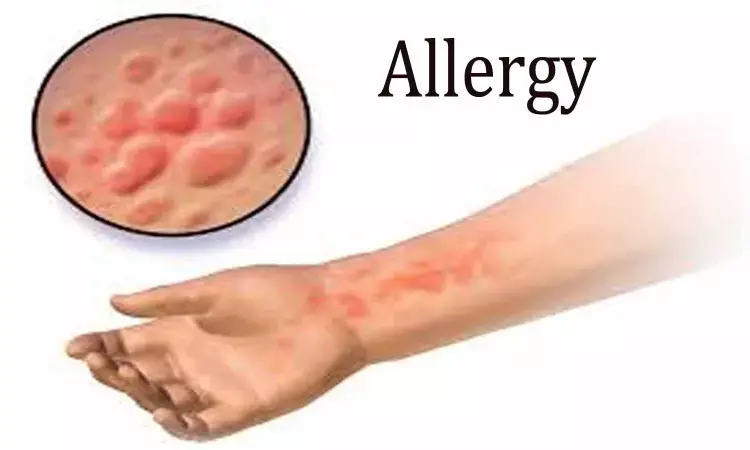- Home
- Medical news & Guidelines
- Anesthesiology
- Cardiology and CTVS
- Critical Care
- Dentistry
- Dermatology
- Diabetes and Endocrinology
- ENT
- Gastroenterology
- Medicine
- Nephrology
- Neurology
- Obstretics-Gynaecology
- Oncology
- Ophthalmology
- Orthopaedics
- Pediatrics-Neonatology
- Psychiatry
- Pulmonology
- Radiology
- Surgery
- Urology
- Laboratory Medicine
- Diet
- Nursing
- Paramedical
- Physiotherapy
- Health news
- Fact Check
- Bone Health Fact Check
- Brain Health Fact Check
- Cancer Related Fact Check
- Child Care Fact Check
- Dental and oral health fact check
- Diabetes and metabolic health fact check
- Diet and Nutrition Fact Check
- Eye and ENT Care Fact Check
- Fitness fact check
- Gut health fact check
- Heart health fact check
- Kidney health fact check
- Medical education fact check
- Men's health fact check
- Respiratory fact check
- Skin and hair care fact check
- Vaccine and Immunization fact check
- Women's health fact check
- AYUSH
- State News
- Andaman and Nicobar Islands
- Andhra Pradesh
- Arunachal Pradesh
- Assam
- Bihar
- Chandigarh
- Chattisgarh
- Dadra and Nagar Haveli
- Daman and Diu
- Delhi
- Goa
- Gujarat
- Haryana
- Himachal Pradesh
- Jammu & Kashmir
- Jharkhand
- Karnataka
- Kerala
- Ladakh
- Lakshadweep
- Madhya Pradesh
- Maharashtra
- Manipur
- Meghalaya
- Mizoram
- Nagaland
- Odisha
- Puducherry
- Punjab
- Rajasthan
- Sikkim
- Tamil Nadu
- Telangana
- Tripura
- Uttar Pradesh
- Uttrakhand
- West Bengal
- Medical Education
- Industry
Relieve your stress, relieve your allergies, says study

Increased allergic reactions may be tied to the corticotropin-releasing stress hormone (CRH), suggests a study published this month in the International Journal of Molecular Sciences. These findings may help clarify the mechanism by which CRH induces proliferation of mast cells (MC) - agents involved in the development of allergies in the human nasal cavity.
"In my daily practice, I meet many patients with allergies who say their symptoms worsened due to psychological stress," states lead researcher Mika Yamanaka-Takaichi, a graduate student of the Department of Dermatology, Osaka City University, "This is what led me to do this research."
Together with Professor Daisuke Tsuruta of the same department, they hypothesized that due to its role in inducing MC degranulation in human skin, "CRH may also be involved in stress-aggravated nasal allergies," says Professor Tsuruta.
When the team added CRH to a nasal polyp organ culture, they saw a significant increase in the number of mast cells, a stimulation both of MC degranulation and proliferation, and an increase of stem cell factor (SCF) expression, a growth factor of mast cells, in human nasal mucosa- the skin of the nasal cavity. In exploring possible therapeutic angles, "we saw the effect of CRH on mast cells blocked by CRHR1 gene knockdown, CRHR1 inhibitors, or an addition of SCF neutralizing antibodies," states Dr. Yamanaka-Takaichi.
In vivo, the team found an increase in the number of mast cells and degranulation in the nasal mucosa of mouse models of restraint stress, which was inhibited by the administration of CRHR1 inhibitor, antalarmin.
"In addition to understanding the effects stress has on our allergies, we have also found promising therapeutic potential in candidates like antalarmin," adds Dr. Yamanaka-Takaichi, "And this is wonderful news for my patients.
https://www.mdpi.com/1422-0067/22/5/2773
Hina Zahid Joined Medical Dialogue in 2017 with a passion to work as a Reporter. She coordinates with various national and international journals and association and covers all the stories related to Medical guidelines, Medical Journals, rare medical surgeries as well as all the updates in the medical field. Email: editorial@medicaldialogues.in. Contact no. 011-43720751
Dr Kamal Kant Kohli-MBBS, DTCD- a chest specialist with more than 30 years of practice and a flair for writing clinical articles, Dr Kamal Kant Kohli joined Medical Dialogues as a Chief Editor of Medical News. Besides writing articles, as an editor, he proofreads and verifies all the medical content published on Medical Dialogues including those coming from journals, studies,medical conferences,guidelines etc. Email: drkohli@medicaldialogues.in. Contact no. 011-43720751


